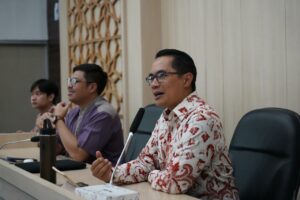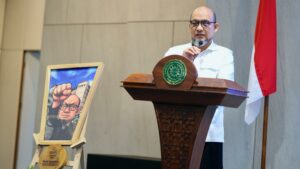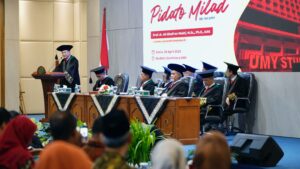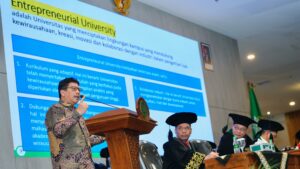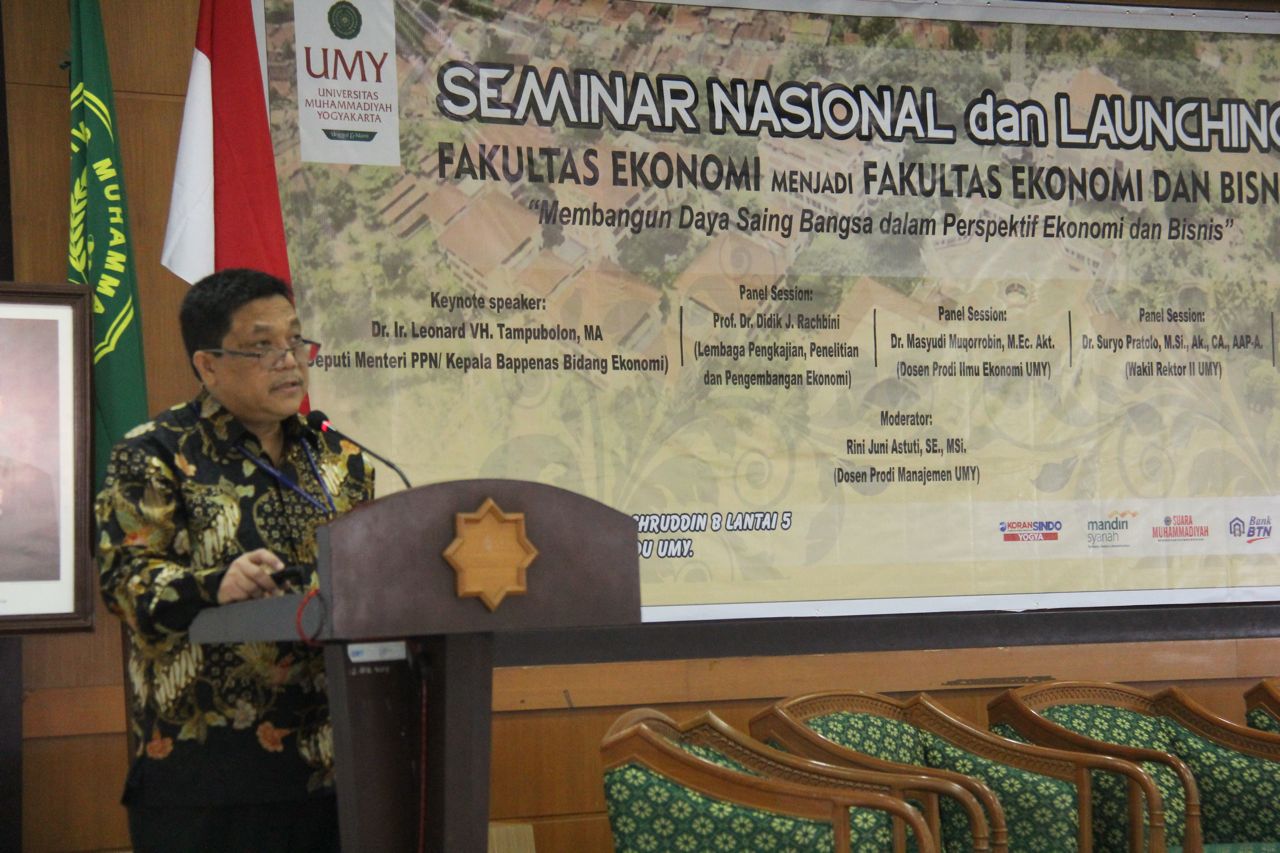
Faculty of Economics and Business of Universitas Muhammadiyah Yogyakarta (UMY) conducted a national seminar on ‘Fostering National Competitiveness in Economics and Business Perspective’. The seminar aimed at enhancing roles of higher education and economics faculty in supporting the development of global competitiveness.
“Economics and business can bolster national competitiveness which has possessed the benchmarks. There are 12 pillars to measure whether a state can be included in global competitiveness. One of the pillars is a business aspect. The other interesting pillar is a higher education aspect. The pillars can be bases for Indonesia to have belief that Indonesian higher education institutions can become world class universities and contribute to global competitiveness. I wish that this faculty can compete globally,” declared Rector of UMY, Bambang Cipto, M.A. when delivering a remark in opening of the seminar and launching Faculty of Economics of UMY turning into Faculty Economics and Business on Saturday (24/9) at A.R. Fachruddin B, floor 5.
Prof. Bmbang argued that higher education possess essential roles in elevating competitiveness. The change from Faculty of Economics to Faculty of Economics and Business can become the focus of human resource empowerment to escalate national competitiveness. “Indonesia possessed a goal of how higher education institutions can be involved in global competitiveness. At least higher education products can guarantee and balance 12 pillars being competition among states,” he inserted.
Furthermore, Deputy Minister of PPN/Head of Bappenas of Economic Division, Dr. Ir. Lonard VH. Tampubolon, M.A. became the keynote speaker of the seminar. He conveyed that competitiveness is one of the vital Medium-Term Development Plan (RPJMN) in the next five years. The objective of RPJMN 2015-2019 is to perform entire development in all aspects with emphasizing competitiveness.
“To achieve the objective, it is necessary to enhance human resources, natural resources, and ability of sciences and technology. Competitiveness relies on not only efficiency and productivity, but also the enhancement of regional and national economic cooperation as well as the diminishing of globalization impacts,” he uttered.
To improve national competitiveness, it is necessary to reinforce human resources. Four main pillars of ASEAN Economic Community 2015 attempt to actualize economic integration among Southeast Asia regions. “The four pillars are single market and production base, a competitive economic region, equitable economic development, and integration with the global economy. Enhancing economy can be undertaken developing small and medium enterprises,” he contended.

